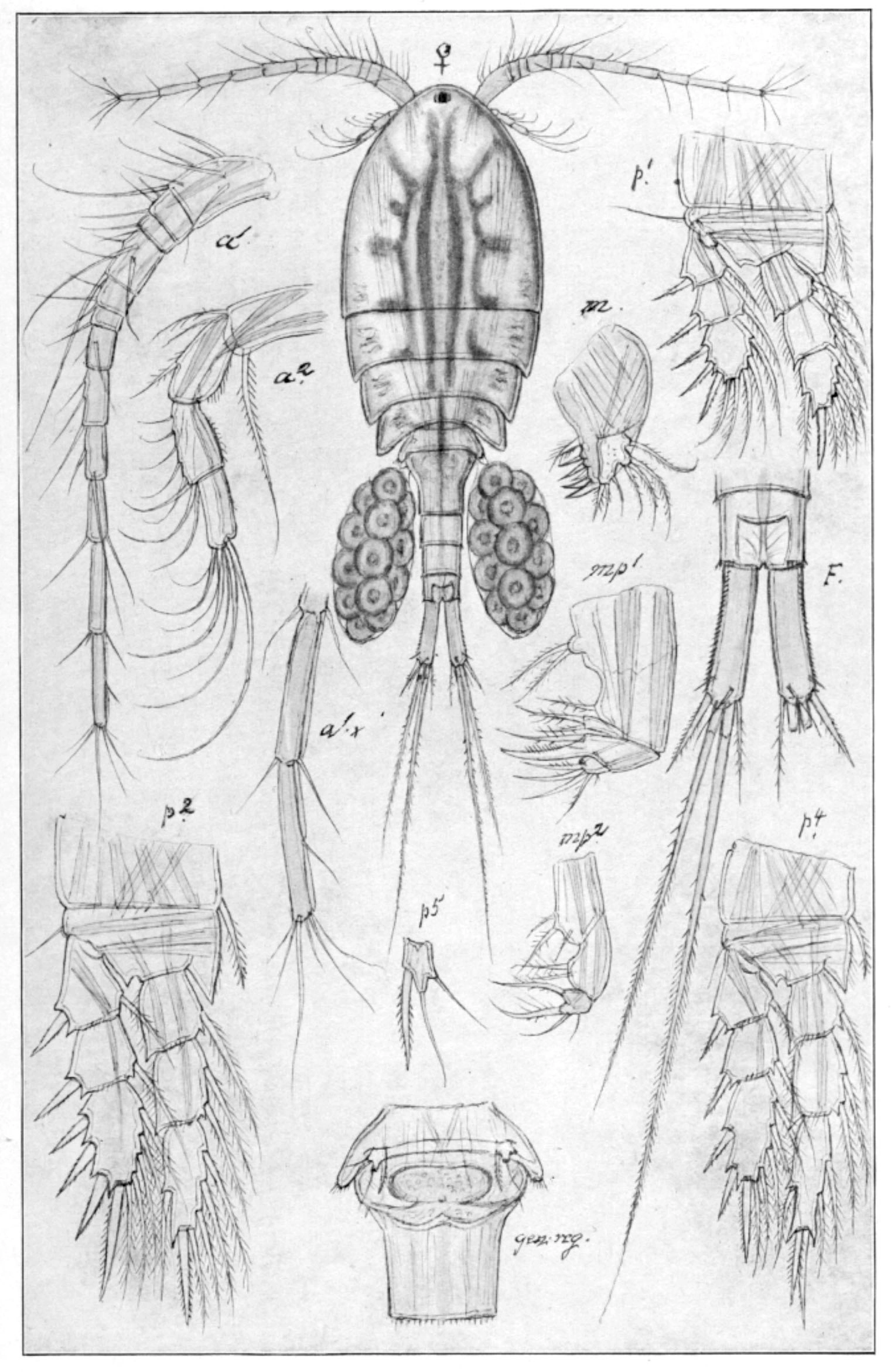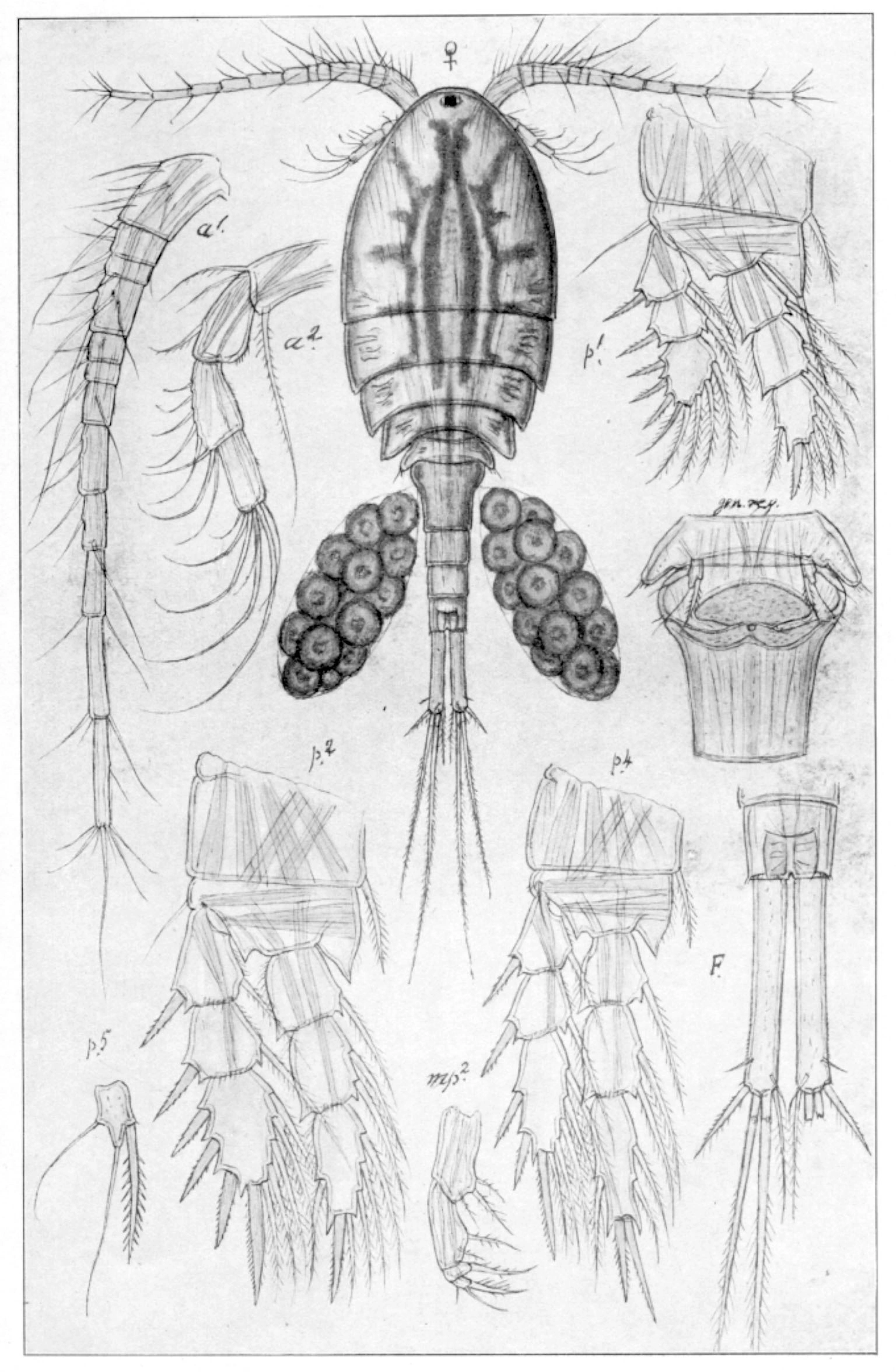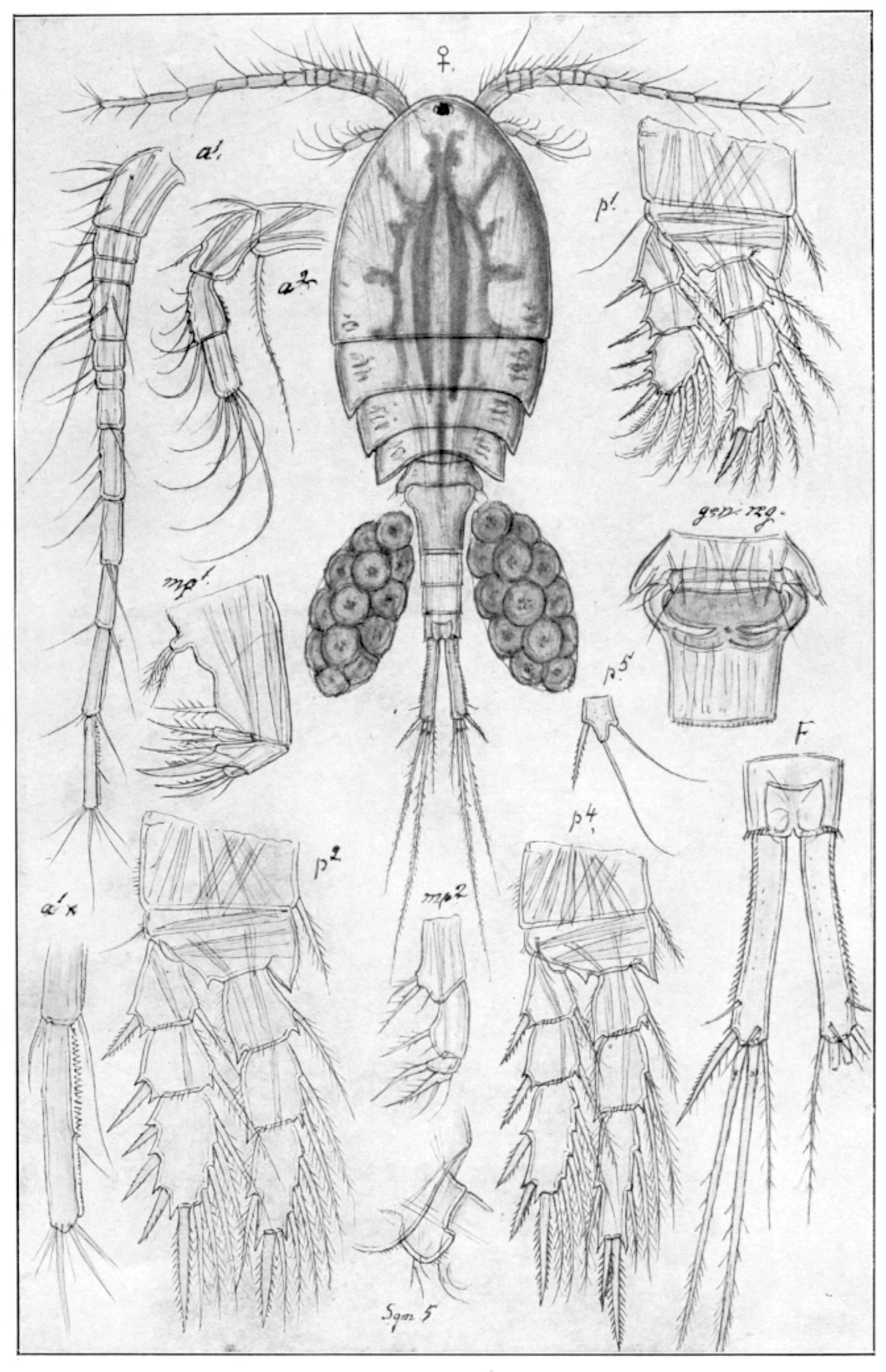Eucyclops serrulatus
Eucyclops serrulatus, with a furca which is about 4–6 times as long as wide, is the most common copepod in Norway. It is a very tolerant species and is one of the first to colonize new established waterbodies.
Key characteristics
Eucyclops serrulatus has a body which is moderately slender and with a furca which is about 4–6 times as long as wide. Populations sampled in early spring or late autumn may have a furca that is somewhat longer. The outer margins of each branch have a dense row of small teeth. The last joint of the antennae has a smooth surface. The colour is more or less dark olivaceous with a greenish tinge.
Female: Length 0.8–1.5 mm
Male: Length 0.6–0.8 mm
Ecology and distribution
E. serrulatus is the most common littoral copepod in Norway and occurs in 43 % of the water bodies. It is distributed in all parts of Norway, from sea level and up to 1486 m a.s.l. It occurs with its highest frequency in localities below 300 and above 1000 m a.s.l. and is common in micro- and macrophyte vegetation in both small pools and in the littoral zone of big lakes. The species has a wide tolerance towards pH and found in lakes having pH varying between 4.0 and 9.9. It is also tolerant towards electrolytes and found in brackish water (0.4–957 mS/m).
| Vitenskapelig navn | < 4,5 | 4,5 - 4,9 | 5,0 - 5,4 | 5,5 - 5,9 | 6,0 - 6,4 | 6,5 - 7,0 | 7,0 - 7,4 | > 7,5 |
|---|---|---|---|---|---|---|---|---|
| 2 | 24,1 | 38 | 57,7 | 55,6 | 46,1 | 50,7 | 69 |
| Vitenskapelig navn | < 1,0 | 1,0 - 1,4 | 1,5 - 1,9 | 2,0 - 2,9 | 3,0 - 3,9 | 4,0 - 4,9 | 5,0 - 6,9 | 7,0 - 9,9 | > 10,0 |
|---|---|---|---|---|---|---|---|---|---|
| 41,1 | 27,4 | 38 | 39,1 | 40,6 | 45,7 | 47,6 | 60,2 | 69,6 |
| Vitenskapelig navn | < 0,01 | 0,01 - 0,09 | 0,1 - 0,9 | 1,0 - 9,9 | 10,0 - 99 | 100 - 999 | > 1000 |
|---|---|---|---|---|---|---|---|
| 41,2 | 44,8 | 37,9 | 42,4 | 43 | 44,2 | 50 |
| Vitenskapelig navn | < 100 | 100-299 | 300-499 | 500-699 | 700-999 | >1000 |
|---|---|---|---|---|---|---|
| 54,4 | 53 | 33,9 | 20,2 | 26 | 43,3 |
Look alikes
Eucyclops speratus and E. denticulatus


